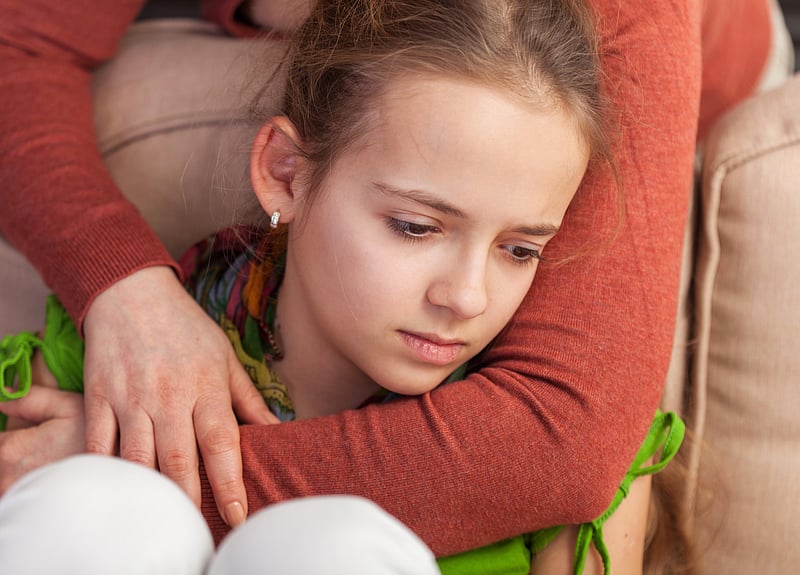Get Healthy!

- Denise Mann
- Posted October 11, 2023
Climate Change Will Harm Children's Mental Health: Report
Raging wildfires, droughts, floods and record-breaking heat brought on by climate change are taking a toll on kids' already fragile mental health.
This is the main message from a new report by the American Psychological Association and the climate advocacy organization ecoAmerica.
These effects may start before kids are born and worsen with age, and are on top of other known stressors such as COVID-19, war and gun violence. What's more, certain groups of children are even more hard-hit by the mental health effects of climate change due to poverty, racism, disability and other factors.
Climate change affects mental health directly and indirectly, said report co-author Christie Manning, of Macalester College in Saint Paul, Minn. She is the director of sustainability and an assistant professor of environmental studies.
Wildfires release fine particulate matter, or PM2.5, into the air, driving pollution, and exposure to air pollutants and high temperatures during pregnancy may increase the chances of having kids with learning issues and some mental health conditions, Manning said.
"Living through and surviving a flood or wildfire impacts children and can cause long-lasting anxiety, and when parents are dealing with stress and trauma, it has repercussions for children," she noted.
Many families have been forced to leave their homes and pets due to fires or floods. Kids may have been injured during the evacuation, lost a loved one or witnessed the destruction of their home. "Displacement can have long-term effects on mental health and learning," Manning added.
These kids may miss school due to extreme weather events. "Social networks are destroyed, and this has long-term ripple effects on children's well-being," she said.
The longer-term impacts of climate change, such as heat and poor air quality, can also increase the risk of anxiety, depression and mental health disorders, she said.
Many kids are also scared about their future due to global warming.
"It's hitting them hard as it throws uncertainty into the choices and options they may have in their life,"Manning said. "Not only do they worry about the future, but they also feel angry at people in power who can do something but don't."
Researchers wrote Mental Health and Our Changing Climate: Children and Youth Report 2023 after reviewing scientific papers on how climate change affects mental health in kids.
There is a lot that parents, teachers, health care providers and caregivers can do to help kids better cope with the effects of climate change on their mental and physical health. "Parents should be ready to listen and not dismiss concerns or say 'Oh, you don't need to worry,'"Manning said. "Have age-appropriate conversations and give your kids opportunities to take age-appropriate actions."
Kids can make a difference, too. Ideas include meeting with neighbors to see if they will invest in a community solar garden, encouraging the city to build bike lanes, or meeting with legislators to share thoughts on climate change, she suggested. The report also lists volunteer opportunities.
Take kids to climate change protests so that they can see that they are a part of something bigger. "Show them that they are having a meaningful part in something that matters,"Manning added.
"Mental health continues to be an enormous issue for adolescents and young adults, and this new report is a very good reminder that climate change is a hot topic for young people,"said Dr. Anisha Abraham. She is a pediatrician, adolescent medicine specialist, and chief of the Division of Adolescent and Young Adult Medicine at Children's National in Washington, D.C. She had no role in the report.
Doctors should ask kids how they are feeling about climate change, especially after an extreme weather event. Abraham also suggested limiting exposure to news and finding age-appropriate resources for younger kids who are expressing anxiety about climate change.
More information
Boston Children's Health helps parents recognize kids who need mental health support.
SOURCES: Christie Manning, PhD, director, sustainability, and assistant professor, environmental studies, Macalester College, Saint Paul, Minn.; Anisha Abraham, MD, MPH, pediatrician, adolescent medicine specialist, and division chief, Adolescent and Young Adult Medicine, Children's National, Washington, D.C.; Mental Health and Our Changing Climate: Children and Youth Report 2023, Oct. 11, 2023






